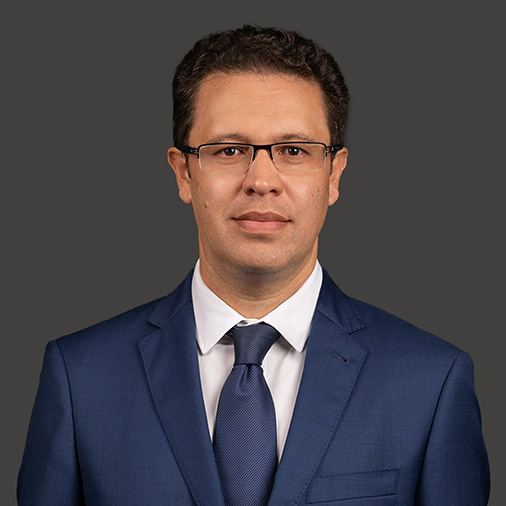Work, invest and live in Mauritius

Moving towards softening immigration policies
The Finance (Miscellaneous Provisions) Act 2021 brought a number of significant amendments to our immigration-related legislations, with the introduction of new schemes and incentives to attract FDI, the streamlining of administrative procedures as well as the softening of established residence, employment and investment criteria. You will find below a highlight of the key amendments:
Occupation Permit
- Qualification as “Self-employed” - Self-employed/non-citizens are now authorised to operate as a one-person company as defined in the Companies Act and not only upon being registered with the Registrar of Businesses under the Business Registration Act.
- Qualification as “Investor” - A new definition of “investor” has been introduced in the Economic Development Board Act which includes a non-citizen, or an association or a body of persons, whether corporate or unincorporated, the control or management of which is vested in persons who are non-citizens.
- Extension of validity - The Professional Occupation Permit has been extended from 3 to 10 years. The period applicable will be the period specified in the contract of employment or the period of 10 years, whichever is the lesser.
- Employment change - Non-citizens holding an Occupation Permit as Professionals are no longer required to submit a new application in case of change in job/employment, provided only that the Economic Development Board (EDB) is informed accordingly and that the new employment satisfies the relevant criteria.
- Finance sector - A new sub-category of Occupation Permit as Professional has been introduced, with the monthly basic salary for Professionals working in fund accounting and compliance services being of at least Rs 30,000, provided that (i) the foreigner has at least 3 years of relevant work experience, and (ii) the employer/company holds a licence from the Financial Services Commission.
- Family Occupation Permit - A 10-year Family Occupation Permit is being introduced for those contributing a sum of USD 250,000 (or its equivalent in freely convertible foreign currency) to the COVID-19 Projects Development Fund. The main features of this permit are as follows:
- the applicant, his/her spouse, dependent child, parent, other dependent or such other person working exclusively for the family unit, as may be approved by the immigration officer, will become resident for a period of 10 years;
- the applicant or his/her spouse will be allowed to carry out any occupation in Mauritius for reward or profit or take up employment in Mauritius; and
- any other persons working for the family unit, as may be approved by the immigration officer, will also be authorised to take up employment with the applicant for the purpose of attending the need of the family.
Qualification as “Dependent Child”
A significant amendment brought to the Immigration Act is the waiving of the maximum age limit of 24 to qualify as dependent child. The child, stepchild or lawfully adopted child must now only be (i) wholly dependent on the permit holder, (ii) unmarried, and (iii) not engaged in any gainful activity.
Permanent Residence Permit
- Extension of validity - With the amendments brought to the Immigration Act, the validity period of the Permanent Resident Permit has been automatically extended from 10 to 20 years.
- Permanent Residence Permit as retired non-citizen - Any investor, professional or self-employed holding the status of a permanent resident may, on application, be granted a Permanent Residence Permit under the category of retired non-citizen in place of his/her status as permanent resident for the remaining period of its validity, provided that he/she has a monthly disposable income of USD 1,500 or its equivalent in any other hard convertible foreign currency.
Premium Investor Certificate
- A Premium Investor Scheme is being put in place to promote (i) emerging sectors, (ii) pioneering industries and first movers, (iii) innovative technologies and industries and (iv) such targeted economic activities as the authorities may approve.
- The Premium Investor Certificate will be eligible for entities:
- investing a minimum of Rs 500 million in the abovementioned sectors; or
- engaged in the manufacture of pharmaceuticals or medical devices; or
- which comply with guidelines as the EDB may issue.
- The holder of a Premium Investor Certificate will be able to benefit from rebates, exemptions and preferential rates in relation to taxes, duties, fees, charges and levies as well as facilities, grants and exemptions in relation to (i) land and buildings, (ii) infrastructure and public facilities (iii) utilities and (iv) labour requirements, including foreign labour, upon approval by the authorities.
Employment of foreigners
- Increase of penalty for occupation/employment without valid permit
Any non-citizen engaged in any occupation in Mauritius for reward or profit or employed without a valid permit and any person who has in employment in Mauritius a non-citizen not holding such a valid permit, will now, on conviction, be liable to a fine of not less than Rs 100,000 (instead of Rs 25,000) but not more than 500,000 (instead of Rs 50,000) and to imprisonment to a term not exceeding 5 years (instead of 2 years).
In addition, a Court which convicts a person for such offence may, in addition to any penalty imposed, order the convicted person to pay: (i) the cost of repatriation of the non-citizen and (ii) any costs associated with the maintenance of the non-citizen pending his/her repatriation.
- Special Permit - As provided for under the Non-Citizens (Employment Restriction) Act, the authorities may now issue a special permit to a victim of trafficking, a presumed victim of trafficking or a non-citizen in a stranded situation. “Stranded situation” includes a situation arising as a consequence of closure of a factory or enterprise or ill-treatment by an employer, leading to a sudden loss or means of subsistence, income or lodging.
Acquisition/holding of property by foreigners
- Definition of “acquire”, “hold” or “purchase” - The definition of these terms has been broadened to include a case where a non-citizen obtains a stake or, an interest in, or the continuous use of, property of an entity, corporate or unincorporated.
It is however specified that the definition does not include the creation of security over property (and not only the burdening of a property with a mortgage or charge, as provided pre-amendment). This may imply that all types of security are covered by the Non-Citizens (Property Restriction) Act.
As a reminder, the definition had already been amended in April 2021 via the Non-Citizens (Property Restriction) (Amendment) Act to include the distribution of property to a beneficiary under the Foundations Act.
- Definition of “dispose of” - The definition now includes “the creation of security over property” and as above, not only burdening of a property with a mortgage or charge.
As a reminder, with the amendments brought by the Non-Citizens (Property Restriction) (Amendment) Act in April 2021, the approval of the authorities is required prior to “disposing of” an immovable property.
- Qualification as “non-citizen” and “shareholder” - These two definitions have been amended to specify that it may include an “unincorporated” association or body of persons.
- Residence Permit & apartment G+2 – A Residence Permit will be issued to foreign nationals acquiring an apartment used, or available for use, as residence, in a building of at least 2 floors above ground floor, provided only that the purchase price of the property is of at least USD 375,000 or its equivalent in any other hard convertible foreign currency (instead of eligibility to apply for a long-stay visa for a consideration exceeding USD 500,000). The exchange rate to be used to calculate the USD equivalent shall be the selling rate in force at the time of signature of the title deed.
- Lease agreements for industrial or commercial purposes - The Non-Citizens (Property Restriction) Act has been amended to clarify that lease agreements for a term not exceeding 20 years to foreigners for industrial or commercial purposes will not require the prior approval of the authorities provided only that they consist exclusively of “non-renewable” leases.
- Non-Citizens Property Restriction Register - A Non-Citizens Property Restriction Register will be maintained by the EDB containing the particulars of (i) the acquisition, holding or purchase of property, (ii) the disposal of property, and (iii) any security taken on property, by a non-citizen.
Registration and deregistration of foreigners
The Economic Development Board Act has been amended to finetune and streamline its registration and deregistration process for an occupation permit, a family occupation permit, a residence permit or to benefit from any scheme requiring registration under the Act.
For instance, where an application for an occupation permit requires the views and recommendation of a public sector agency, that public sector agency shall, within 5 working days from the date of a request from the EDB submit its views. Where no reply is received within this delay, it will be deemed that the public sector agency has no objection to the application.
With the above initiatives, Mauritius is undoubtedly striving to create a more favorable and enabling climate to attract and retain foreigners/FDI, particularly those coming from France and South Africa who have historically been the nationalities having more residents on the island.
Let’s hope that these measures, coupled with the opening of borders to international travelers, will have positive effects as Mauritius needs to attract high caliber professionals to boost up its economy.
This article was published in LeDefiMedia on 08.09.2021.



